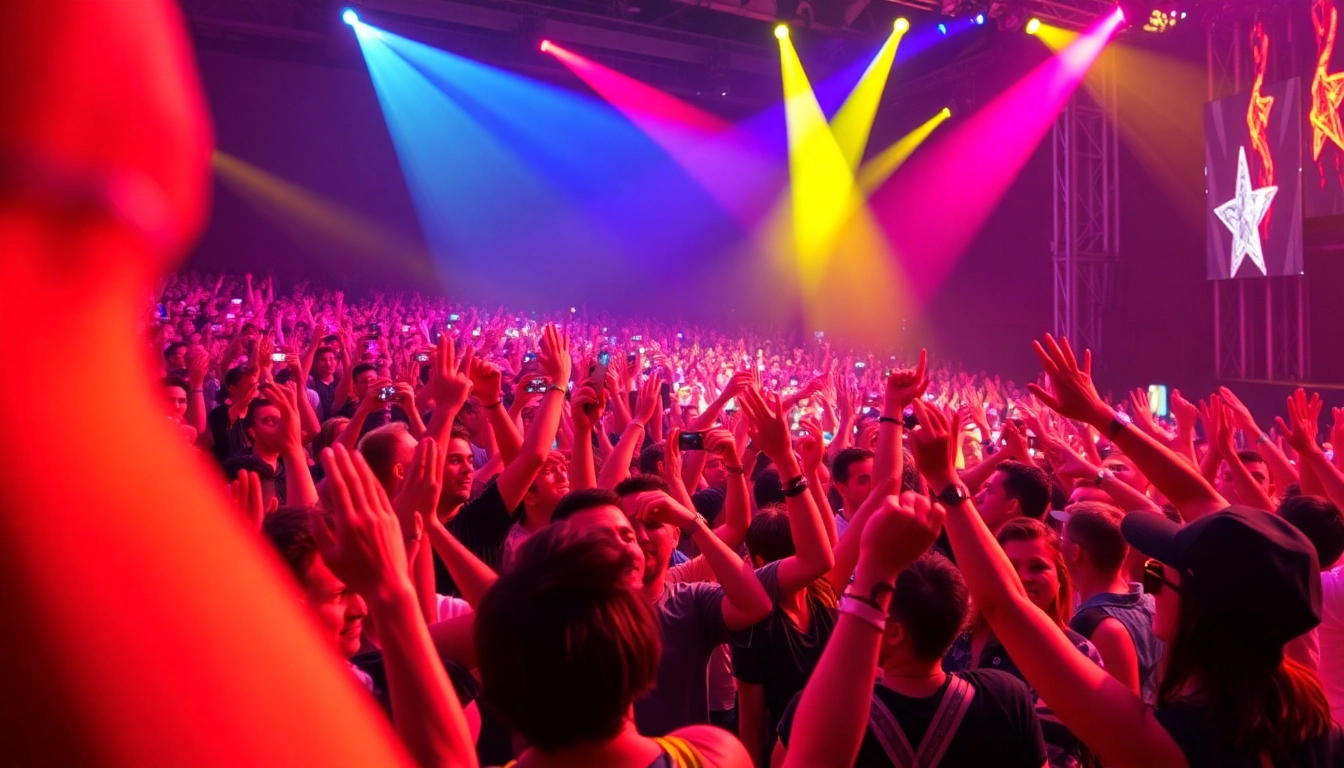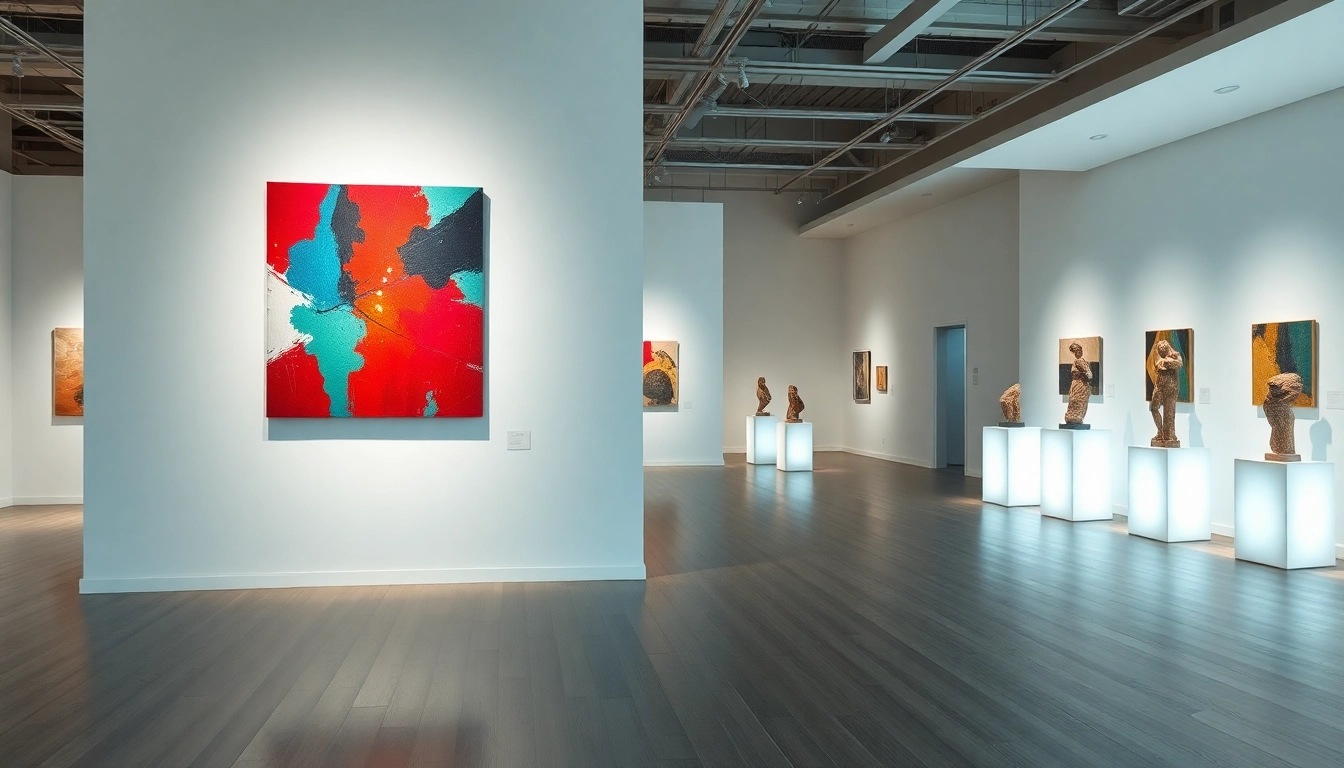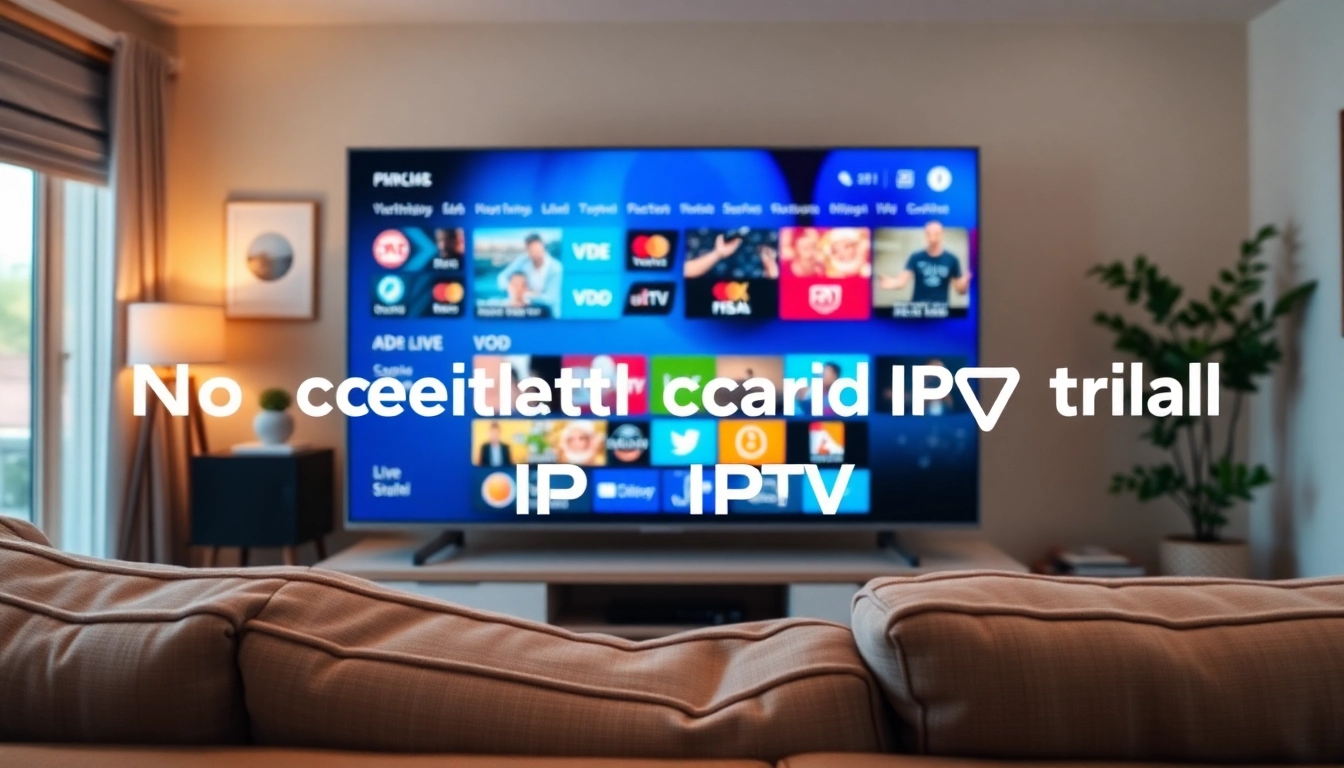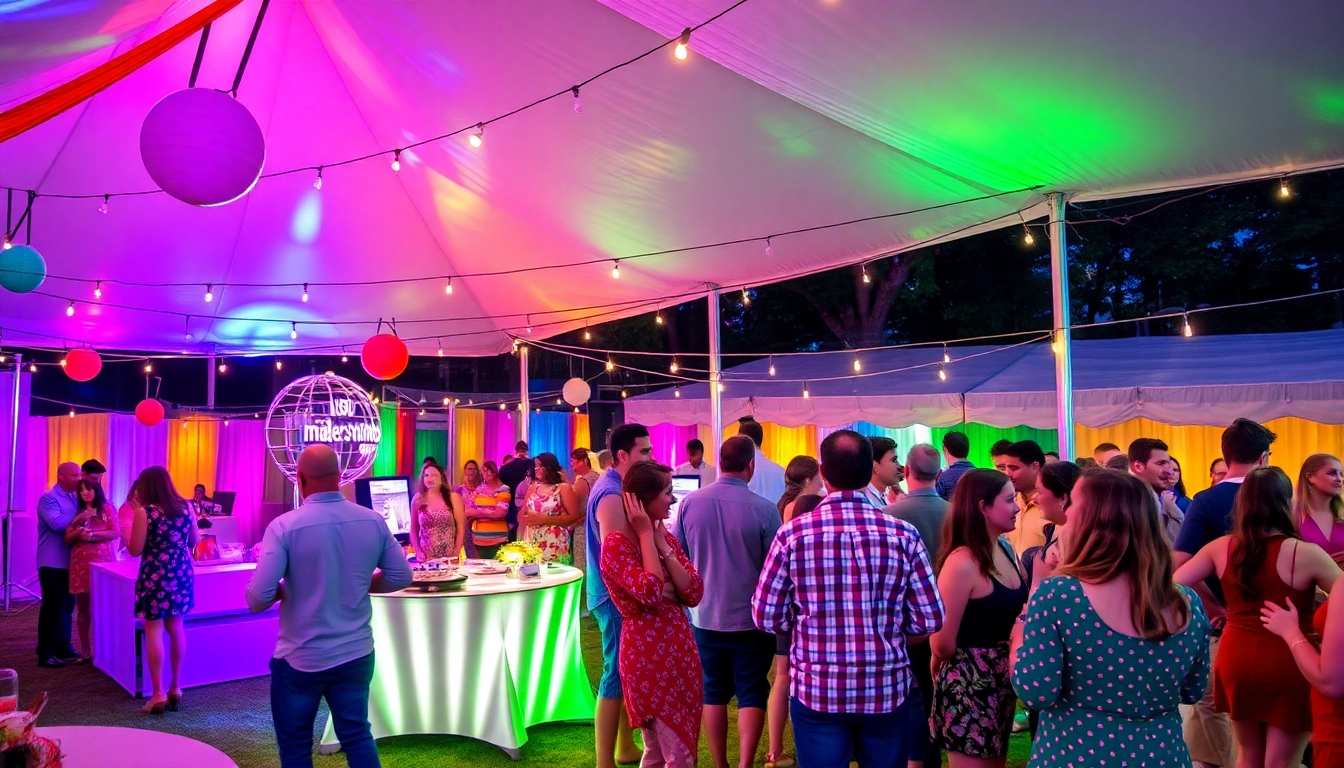Understanding the Passion of Live Music Fans
The world of live music is a rich tapestry of experiences that stir deep emotions and create lasting memories. Live Music Fans embody this passion, uniting under the shared joy of music that transcends boundaries. This article explores what drives fans to attend live events, the sense of community fostered in these spaces, and the demographics and preferences that define this vibrant group.
What Drives Live Music Fans to Attend Events?
At the heart of every concert is the electrifying atmosphere that live performances bring. For many, it’s not just about hearing music; it’s about feeling it. The energy of a crowd, the raw power of musicians performing in real-time, and the shared experience with fellow fans create a unique environment that recordings simply cannot replicate. Here are several key factors that drive live music fans to attend events:
- Emotional Connection: Live music evokes emotions that can’t be experienced through digital formats. Fans often share personal stories tied to songs, making each performance feel deeply personal and significant.
- Social Interaction: Concerts provide a venue for socializing, where fans can connect with friends and meet new people. This camaraderie is a major incentive for many attendees.
- Escapism: Attending live shows offers a break from the mundane. Fans can immerse themselves in the music, forget their daily troubles, and enjoy an exhilarating escape.
- Fandom and Loyalty: Many music fans develop a strong attachment to their favorite artists. This loyalty is a motivating factor for attending events, particularly if the artist’s performance includes rare songs or special surprises.
The Role of Community among Live Music Fans
The concert-going experience is as much about the music as it is about the connections forged among fans. The community that forms around live music is powerful and multifaceted:
- Shared Experiences: Fans often share the same experiences, whether it’s singing along to a beloved song or witnessing an unexpected moment during a performance. This creates bonds that extend beyond the concert space.
- Fan Culture: Each music genre has its own culture, often seen in the fashion, language, and behaviors of its fans. For instance, punk rock fans may embrace a more rebellious style, whereas country music audiences often dress in more casual, rustic clothing.
- Support Systems: Within these communities, fans support each other. From helping each other get tickets to sharing music recommendations, the sense of solidarity is strong.
Live Music Fans: Demographics and Preferences
The composition of live music fans is diverse, ranging across a spectrum of ages, backgrounds, and musical tastes. Understanding these demographics can help organizers tailor their events to cater to specific segments:
- Age Groups: Younger audiences are drawn to popular and contemporary artists, while older demographics may prefer classic rock or nostalgia acts. Festivals tend to attract a wider age range, as they feature multiple genres and artists.
- Geographic Variations: Urban areas often see more diverse and numerous live music events compared to rural settings. Fans in cities may also have distinct preferences based on local culture.
- Genre Preferences: Fans are often loyal to specific genres (e.g., indie rock, hip-hop, jazz), and this loyalty affects their concert-going behavior. Understanding genre preferences can significantly enhance marketing strategies.
How to Attract Live Music Fans to Your Events
Attracting live music fans requires a strategic approach that resonates with their motivations and preferences. Here are effective marketing strategies to consider:
Effective Marketing Strategies for Engaging Live Music Fans
To effectively engage this audience, consider the following marketing strategies:
- Targeted Advertising: Utilize data-driven insights to create targeted ad campaigns. Utilize social media platforms like Instagram and Facebook, where visual content draws in fans.
- Incentives and Discounts: Fans appreciate exclusive offers. Early bird ticket discounts or group deals can incentivize purchases and foster attendance.
- Engage in Storytelling: Use narratives in your marketing that resonate emotionally with fans. Highlight the journey of the artist or the unique aspects of your venue.
Utilizing Social Media to Reach Live Music Fans
Social media is a powerhouse for reaching and engaging live music fans. Here’s how you can harness its potential:
- Interactive Content: Polls, quizzes, and behind-the-scenes footage engage fans and keep them excited about upcoming events.
- Artist Collaborations: Partner with artists to promote events through their social media platforms. This exposes your event to their followers, who are likely to be interested.
- Hashtags and Trends: Create event-specific hashtags to encourage attendees to share their experiences. This increases visibility and entices others to join future events.
Collaborations with Influencers and Artists Loved by Live Music Fans
Influencers play a crucial role in shaping perceptions and driving attendance to live music events. Consider the following collaborative approaches:
- Influencer Partnerships: Identify influencers who align with your event’s vibe and demographic. Collaborating with them for promotions can amplify reach significantly.
- Meet-and-Greets: Organize opportunities for fans to meet their favorite artists, creating exclusive experiences that fans will be eager to attend.
- Content Creation: Work with artists and influencers to generate content such as interviews, performances, or vlogs that can build hype around your event.
Enhancing the Concert Experience for Live Music Fans
Once you’ve attracted live music fans, the next challenge is to provide an unforgettable concert experience. Here’s how to elevate this experience:
Best Practices for Venue Setup and Design
The physical environment of a concert can significantly affect the fan experience:
- Sound Quality: Invest in high-quality sound equipment and acoustics. Poor sound can ruin an otherwise stellar performance.
- Visual Elements: Lighting and stage design play critical roles in enhancing the overall atmosphere. Unique setups, such as 360-degree stages, can make performances more immersive.
- Accessibility: Ensure the venue is accessible to all fans, including those with disabilities. This fosters inclusivity and improves overall satisfaction.
Creating Memorable Merchandise for Live Music Fans
Merchandise offers an excellent opportunity to enhance the fan experience and create lasting memories:
- Diverse Product Offering: Offer a range of merchandise, from unique apparel to exclusive music recordings that fans can take home as souvenirs.
- Personalization: Allow fans to customize items, such as T-shirts or posters, for a unique touch that deepens their connection to the event.
- Environmental Considerations: Eco-friendly merchandise options can appeal to fans who prioritize sustainability, enhancing your brand reputation.
Feedback Mechanisms: What Live Music Fans Really Want
Understanding attendees’ feedback is vital for continuous improvement. Consider these feedback mechanisms:
- Post-Event Surveys: Distribute surveys post-event to gauge fan satisfaction and gather insights on what worked and what didn’t.
- Social Media Listening: Monitor discussions about your events on social media to identify trends and hot topics that can inform future offerings.
- Community Engagement: Foster ongoing discussions in fan communities or forums regarding their preferences and expectations.
Case Studies: Successful Engagement with Live Music Fans
Learning from successful engagements can provide invaluable insights for future event planning. Below are notable case studies:
Iconic Festivals That Captured the Hearts of Live Music Fans
Consider the impact of well-known music festivals, such as Coachella and Glastonbury:
- Diverse Lineup: These festivals attract attendees by offering a broad range of artists across multiple genres, appealing to a wider audience.
- Experiential Branding: Iconic festivals create immersive brand experiences that resonate with fans long after the event concludes.
- Community and Culture: These events foster a sense of belonging among attendees, as fans gather to celebrate shared musical passions.
Innovative Approaches by Brands to Engage Live Music Fans
Many brands have pioneered unique strategies to engage fans:
- VIP Experiences: Brands like Red Bull offer exclusive access to unique experiences, such as artist meet-and-greets or backstage tours.
- Interactive Elements: Companies integrate technology into events (e.g., live polls or app interactions) to enhance engagement.
- Partnership with Local Communities: Brands collaborating with local businesses or artists can create meaningful connections with fans and foster community loyalty.
Lessons Learned from Past Events with Live Music Fans
A review of previous events shows critical lessons in fan engagement:
- Importance of Communication: Clear, consistent communication leading up to an event can enhance anticipation and satisfaction.
- Flexibility and Adaptability: Being able to pivot in response to unforeseen circumstances (e.g., weather, artist changes) is crucial for maintaining fan engagement.
- Utilizing Technology: Leveraging technology for ticketing, merchandise, and fan interaction has proven beneficial in enhancing the overall experience.
Measuring Success with Live Music Fans Engagement
Tracking your success in engaging live music fans is essential for continuous improvement. Here are some approaches to measure this engagement effectively:
Key Metrics to Evaluate the Impact on Live Music Fans
To gauge success, consider these key metrics:
- Attendance Rates: A fundamental metric reflecting how many fans showed up compared to ticket sales.
- Social Media Engagement: Track likes, shares, comments, and mentions related to the event on social platforms.
- Customer Feedback Scores: Analyze survey responses and reviews to assess fan satisfaction levels.
Tools and Techniques for Gathering Insights on Live Music Fans
Utilizing advanced tools can enhance your data collection and analysis:
- Survey Platforms: Use platforms like SurveyMonkey or Google Forms to gather and analyze fan feedback efficiently.
- Social Media Analytics: Tools such as Hootsuite or Sprout Social can help monitor engagement and sentiment regarding your events.
- Ticketing Insights: Platforms like Eventbrite often provide analytics that detail customer behaviors and preferences.
Future Trends in Engaging Live Music Fans
As the landscape of live music continues to evolve, keeping an eye on emerging trends is critical:
- Hybrid Events: The blending of in-person and virtual concerts will likely shape future event strategies, allowing broader audience reach.
- Increased Focus on Sustainability: Live music fans increasingly value eco-friendly practices, and events that prioritize sustainability are likely to resonate more.
- Enhanced Personalization: Data-driven personalization in marketing—tailoring experiences for individual fans—will become essential for engagement.



